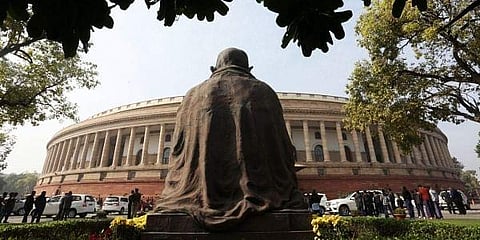

PUDUCHERRY: Former Lok Sabha member M Ramadass urged MP V Vathilingam to petition the Parliament seeking removal of the nomination system, or to direct the Ministry of Home Affairs (MHA) to frame rules for nomination of MLAs. Ramadass stated the nomination had been brazenly misused by the ruling regime for its sectarian end.
Referring to the Vaithilingam's statement seeking abolition of the posts of nominated MLAs from the Statute Book, Ramadass said that the MP's contention is incorrect as the Union Territory Act, 1963 -- under which nominations are made -- is silent on the purpose of nomination. Vaithilingam sought the abolition on the grounds that since qualified persons are elected, there is no need for separate nomination of persons to the Assembly.
If educational qualification was the criterion for nomination, the government should have nominated outstanding academicians which, unfortunately, has not happened, he said. On the contrary, it had chosen diploma and school education qualified persons for nomination, Ramadass added.
However, there is another valid ground on which present nominations can not only be made null but can also be obliterated, said Ramadass.
He added, the present Centre continues to thwart the celebrated 'objectives' of nomination laid down by former Home Minister Lal Bahadur Shastri, who had paved the way for discussion of the Union Territory Act, 1963 in May. This made a commitment to three purposes of nomination, said Ramadass.
According to him, nominations can be given to a member of a larger community of the UT that is not represented through the poll process. Secondly, it could be given to a member of the female population that is under-represented and thirdly, a technically qualified person whose services are necessary to enrich the Assembly proceedings. However, these three objectives were not incorporated in the Act.
These objectives which subserve public interest should have been incorporated under Section 3 (3) of the Union Territory’s Act 1963, Ramadass asserted. Failure to do so, has emboldened the Centre to indulge in 'Aya Ram' and 'Gaya Ram' politics in the UT by nominating unqualified men from the ruling party and functionaries who crossed from the Opposition to the ruling party, charged Ramadass.
The plea will bring about nomination of deserving people to the Assembly, benefiting both the House and the people, said Ramadass.